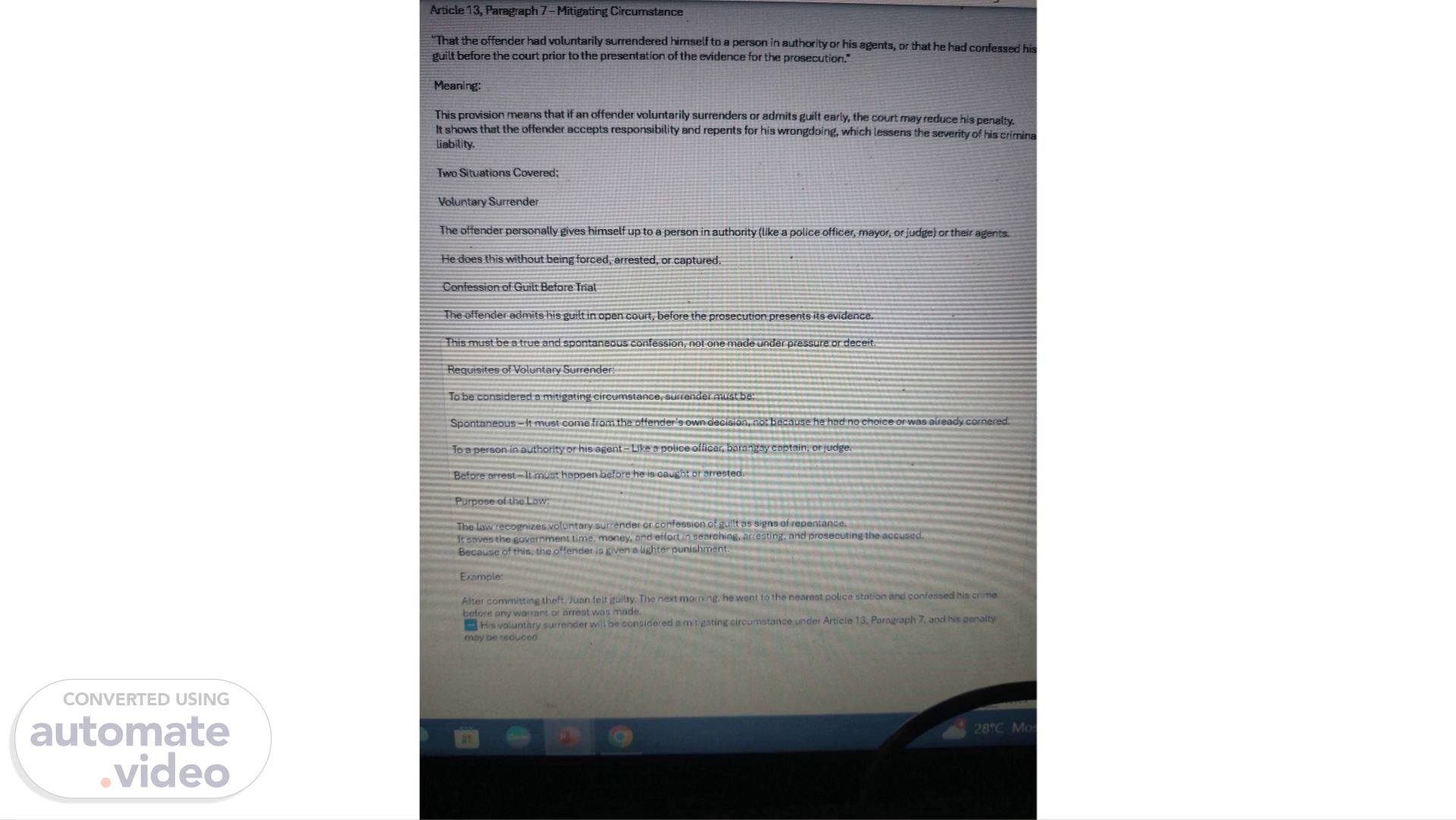Scene 1 (0s)
k-ti& 13, •Parvaph MitigBting Circurnstanæ "That fre offH'der iud wluntarity himself to a in Buthxyity or his agents, or that he had guilt the ccurt prior to the of the widence for proæcxtiCY1.• &anirw This provision nwans that if an offender voluntarily surrenders or admits glitt early, the court rnay reduce his penalty It shows that the offer&r responsibility and repents for his wrongdoire, which lessens the severity of his crirrina Two Stuations Wuntary Surrender Tte offender personally gives himself up to a person in authority (like a police officer, mayor, or judge) or their He this without being forced, arrested, or captured. Cafession of Guilt Before Trial The offender admits his guilt in open court, before the prosecution presents its evidence. •TEShiüstbéittüeand spontaneous Confession, not one made undef pressure or deceit. Requisites of Voluntary Surrender: To be considered a mitigating circumstance, surrender must be: Spontaneous —It must come from the offender 's decision, not because he had no choice or was already cornered. To a person in authority or his agent — Like a police officer, baranäay captain, or judge. Before arrest—lt must happen before he is caught or arrested. Purpose of the Law The law recognizes voluntary surrender or confession Of guilt as Of repentance. It saves the government time. rnorey, and effort in searching. arresting, and prosecuting the accused. Because of this, offender is given a lighter punishment. Example • . After cornmiwne theft. Juan felt guilty. The next morning, he went to the nearest police station his crime any o' arrest made. considered m;tieating circumstance under Article 3. Paragraph 7. and his penalt) may oe.
